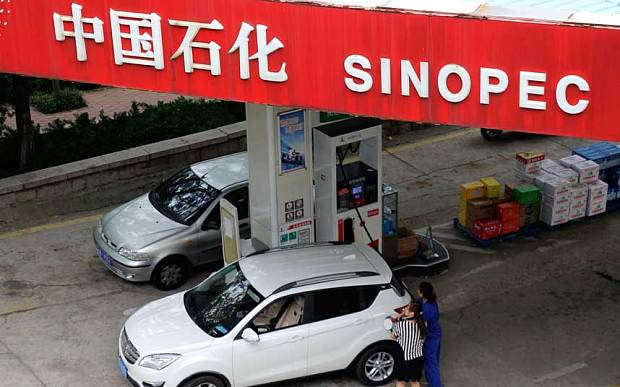(ATF) For years, China’s three state-run oil majors have complained about what they say is Beijing’s unfair tax system levied against their finished oil products that often eats into their profits. Adding to the quandary is what they claim are smaller and even illegal players in the industry that avoid product taxes completely by operating without a retail business license and even engaging in oil smuggling.
Recently, Sinopec, the country’s largest oil company in terms of revenue, picked up the fight again, pressing its case during China’s annual “two sessions” political meetings in Beijing earlier this month. The oil and gas major called for the government to stop illegal or tax-free product sales and to create “a fair competitive environment for the refined product market.”
This includes illegally operated refined oil facilities that sell counterfeit and inferior refined oil products, as well as the transfer and transportation of refined oil products that have not been licensed for retail sales.
“Storage, sales of refined oil, etc, which seriously disrupt the order of the refined oil market and meet the conviction standards, shall be convicted of illegal business operations in accordance with the provisions of Article 225 of the Criminal Law,” Sinopec said.
“Refined oil smuggling and market chaos still need to be rectified,” Huang He, the party secretary of Sinopec’s Hunan oil sales unit, said the parliamentary meetings. “China needs to establish a high-standard refined oil market system.”
Call for crackdown, bigger penalties
The company also laid out additional steps that the government could take, including establishing a normal mechanism for supervision of the refined oil market, severely cracking down on illegal smuggling and illegal operations such as “self-built tanks, mobile fuel trucks, and black dens.”
The government should also increase judicial penalties for tax evasion enterprises and individuals, Sinopec said. It also called for improvements to the tax management system for imported products, carrying out various special rectification actions for tax evasion, such as changing tariff numbers and product names, as well as strengthening tax supervision of gas stations, installing “intelligent” tax control systems for gas stations and real-time sales monitoring to prevent local refineries from entering the refined oil market.
Illegal operators can obtain oil via a number of ways including by direct smuggling. Under this method, players bring the fuel in vessels, dock in small ports, and discharge their cargoes directly to waiting tanker trucks who then deliver their shipments to service stations, without proper documentation and taxes being paid.
At the end of last year, Chinese authorities shut down a number of smuggling rings, including a major refined oil smuggling bust, totalling some 10,000 tonnes in Fujian province, in addition to destroying two more oil smuggling rings in nearby coastal areas.
In a raid in Fujian province in September 2017 that major news outlets in the country picked up on, police seized seven ships, 10 oil trucks and nine underground storage facilities. At the time of the bust, the illegal cartel had already smuggled at least 180,000 tonnes of oil valued at $138 million.
However, despite Sinopec’s push and media coverage of similar raids, the prospect of imminent changes appear limited, analysts say. The country’s other two oil majors have made similar requests in recent years.
The Sinopec executive also proposed a consumption tax on imported diluted bitumen, light-cycle oil and mixed aromatics, which are used for diesel and gasoline blending, respectively. Imports of these products are currently exempt from the hefty consumption taxes that are applied to road transportation fuels, reducing the competitiveness of domestic refinery output.
Tax reforms have been mooted for years, with the prospect of blending components becoming subject to the consumption tax first raised concerns among some market participants in 2017, an Argus report said. However, so far, no new policy has been issued. “The huge oil blending market remains active in east and south China,” one trader said.
Consumption taxes are collected mainly by the central government, giving local governments little incentive to put resources into tax collection.
























